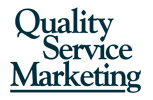Want a great way to foster mutual respect among the employees in your organization? Try this on for size.
Akron, OH-based ad agency Hitchcock Fleming & Associates (HFA) launched an “In Your Shoes Day” where employees in different departments shadowed each other to better appreciate the various jobs in the organization. After all, they depend on each in order to best serve their clients.
Julie Biddle, an Account Coordinator at HFA, told me it was an extraordinary experience. In her own words:
“For my shadow day I was in the shoes of someone in our production department. It was eye opening to spend a day with him and to see what his job in the agency is like. I even got to participate by doing his job for a couple hours.
Staring at the computer all day and working at making sure you notice every little detail was challenging, and I could finally see why some of the production people I work with are exhausted by the end of the day. The next day, when I went back to being in my own shoes, I not only realized that I am definitely in the right area of work but I also gained a higher respect for the people who work in the production department.
This was definitely a worth while training experience and I praise my company for making all of us participate! “
[Thanks for sharing, Julie.]
You can find other company examples of ‘trading places’ in a previous post. It seems there’s no better way to create empathy, understanding and mutual respect among employees.
See how it fits in your organization.





